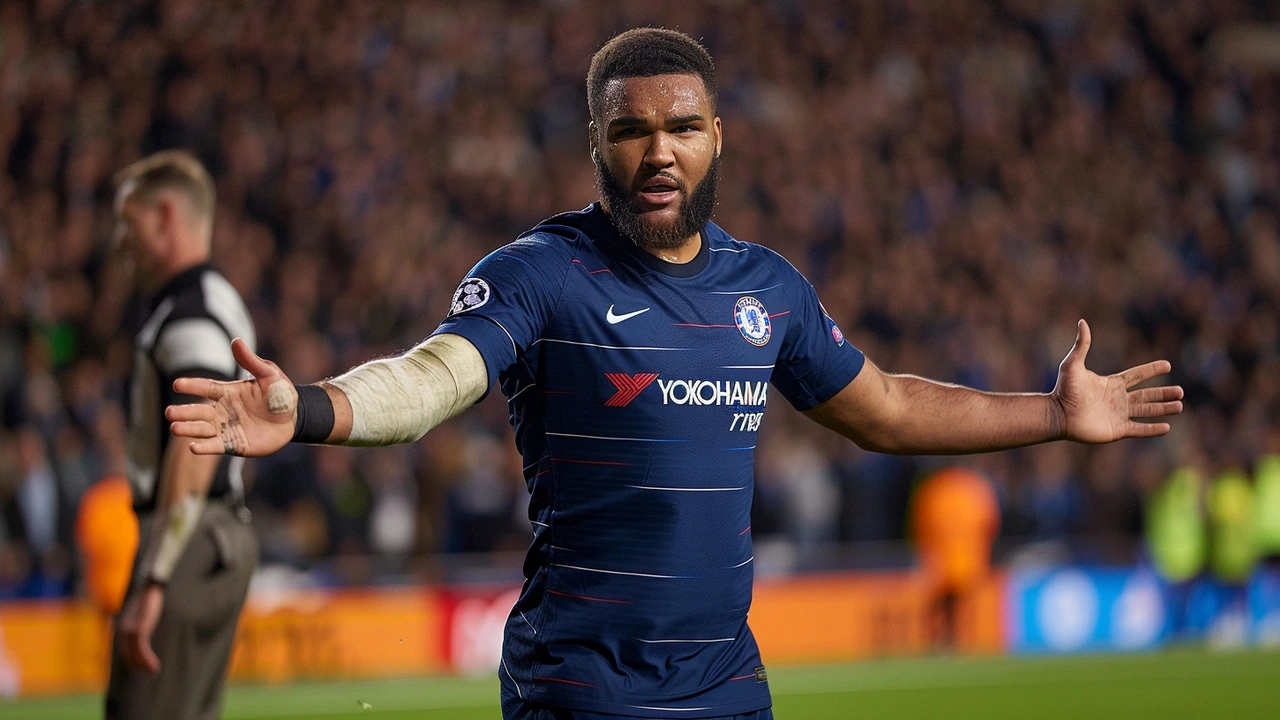Introduction
In the world of professional football, few players have faced as tumultuous a path as Reece James, the talented and dedicated captain of Chelsea. Known for his skill and composure, James has found himself under a harsh spotlight due to recent disciplinary actions on the field. His current situation, however, calls for empathy and understanding rather than criticism.
The Incident
Recently, Reece James was handed a red card for a reckless tackle on Brighton's Joao Pedro, marking his second red card of the season. This incident followed a previous ban and fine for abusing a match official, sparking widespread concern regarding his discipline and conduct. These moments of on-field aggression are a stark contrast to the personality described by those who know him well. According to his close friends and family, James is a quiet, focused, and kind individual. The disparity between his public actions and private demeanor has left many puzzled, prompting a deeper look into what might be contributing to his behavior.
Psychological Impact of Injuries
One significant factor that cannot be overlooked is the psychological impact of repeated injuries on a professional athlete. Over the past five years, James has endured 18 different injuries and illnesses. Such a relentless series of physical challenges takes a toll not just on the body, but also on the mind. The constant cycle of injury, recovery, and return to play can erode an athlete's confidence, leading to anxiety and a loss of trust in their own physical capabilities. This psychological strain is compounded by the pressure of leading a team that has been struggling to find its form.
Pressure of Captaincy
In addition to managing his own health, Reece James faces the substantial responsibility of captaining Chelsea, a team with a storied history and fervent fanbase. The pressure to perform consistently and lead by example can be overwhelming, especially when the team is not meeting expectations. This dual burden of personal and professional challenges can create a perfect storm of stress and frustration, which may occasionally manifest as outbursts on the field.
Understanding the Outbursts
James's recent behavior, including his altercations with referees and opponents, can be viewed through this lens of accumulated stress and frustration. Experts in sports psychology underline that such actions are not uncommon among athletes dealing with prolonged periods of hardship. The emotional buildup from feeling physically compromised and facing relentless criticism can lead to momentary lapses in judgment. It's essential to recognize that these outbursts are not reflective of James's character but are symptoms of deeper underlying issues.
Calls for Support
Instead of casting aspersions on his character, it's crucial that the football community rallies around Reece James during this tough time. Athletes, especially those in leadership positions, require a robust support system to navigate the complexities of their careers. This includes not just physical rehabilitation but also psychological counseling and emotional support. By fostering an environment that prioritizes their mental and emotional well-being, clubs can help their players maintain balance and resilience.
James's journey is a testament to the resilience required to overcome adversity in professional sports. While it’s easy to focus on his mistakes, it's more productive to understand the context that drives such actions. Providing the necessary support can help him regain his confidence and continue to be the remarkable player and leader he has always been.
The Role of Fans and Media
Fans and media play a significant role in shaping the narrative around athletes. Adopting a compassionate perspective can make a substantial difference. Empathizing with their struggles and championing their efforts to overcome challenges can create a positive atmosphere that encourages recovery and growth. For Reece James, knowing that the community stands behind him could be the boost he needs to navigate this difficult phase and emerge stronger.
Conclusion
In conclusion, Reece James's current challenges highlight the complex interplay between physical injury, psychological well-being, and professional responsibilities. His recent disciplinary issues should not overshadow the dedication and effort he has consistently shown throughout his career. By extending protection, understanding, and support, we can help James and other athletes like him to heal, both physically and mentally, and continue to inspire on and off the field. It's time to shift the focus from criticism to compassion, fostering an environment where athletes can thrive despite the hurdles they face.

